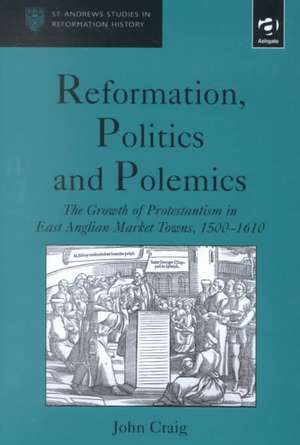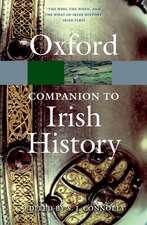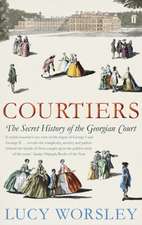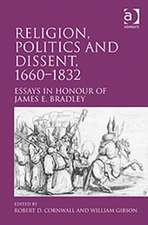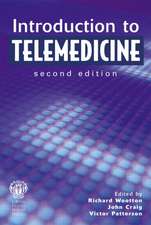Reformation, Politics and Polemics: The Growth of Protestantism in East Anglian Market Towns, 1500–1610: St Andrews Studies in Reformation History
Autor John Craigen Limba Engleză Hardback – 7 feb 2002
| Toate formatele și edițiile | Preț | Express |
|---|---|---|
| Paperback (1) | 469.34 lei 6-8 săpt. | |
| Taylor & Francis – 11 noi 2016 | 469.34 lei 6-8 săpt. | |
| Hardback (1) | 1005.04 lei 6-8 săpt. | |
| Taylor & Francis – 7 feb 2002 | 1005.04 lei 6-8 săpt. |
Din seria St Andrews Studies in Reformation History
- 15%
 Preț: 695.67 lei
Preț: 695.67 lei -
 Preț: 311.51 lei
Preț: 311.51 lei -
 Preț: 296.35 lei
Preț: 296.35 lei -
 Preț: 313.38 lei
Preț: 313.38 lei - 23%
 Preț: 942.83 lei
Preț: 942.83 lei - 30%
 Preț: 772.07 lei
Preț: 772.07 lei - 18%
 Preț: 1054.71 lei
Preț: 1054.71 lei - 18%
 Preț: 1000.27 lei
Preț: 1000.27 lei - 28%
 Preț: 880.05 lei
Preț: 880.05 lei - 30%
 Preț: 768.30 lei
Preț: 768.30 lei - 17%
 Preț: 240.92 lei
Preț: 240.92 lei - 26%
 Preț: 822.34 lei
Preț: 822.34 lei - 18%
 Preț: 1000.27 lei
Preț: 1000.27 lei - 30%
 Preț: 783.79 lei
Preț: 783.79 lei - 31%
 Preț: 766.66 lei
Preț: 766.66 lei - 18%
 Preț: 1000.27 lei
Preț: 1000.27 lei - 28%
 Preț: 498.88 lei
Preț: 498.88 lei - 18%
 Preț: 1053.16 lei
Preț: 1053.16 lei - 31%
 Preț: 767.88 lei
Preț: 767.88 lei - 18%
 Preț: 1054.71 lei
Preț: 1054.71 lei - 31%
 Preț: 764.87 lei
Preț: 764.87 lei - 18%
 Preț: 1062.62 lei
Preț: 1062.62 lei - 18%
 Preț: 1005.01 lei
Preț: 1005.01 lei - 30%
 Preț: 768.82 lei
Preț: 768.82 lei - 31%
 Preț: 765.19 lei
Preț: 765.19 lei - 18%
 Preț: 1062.62 lei
Preț: 1062.62 lei - 31%
 Preț: 764.20 lei
Preț: 764.20 lei - 30%
 Preț: 769.55 lei
Preț: 769.55 lei - 25%
 Preț: 768.30 lei
Preț: 768.30 lei - 30%
 Preț: 770.33 lei
Preț: 770.33 lei -
 Preț: 349.80 lei
Preț: 349.80 lei - 31%
 Preț: 765.84 lei
Preț: 765.84 lei - 31%
 Preț: 765.84 lei
Preț: 765.84 lei - 18%
 Preț: 1004.20 lei
Preț: 1004.20 lei - 27%
 Preț: 496.94 lei
Preț: 496.94 lei - 18%
 Preț: 1001.84 lei
Preț: 1001.84 lei - 30%
 Preț: 770.62 lei
Preț: 770.62 lei - 28%
 Preț: 739.65 lei
Preț: 739.65 lei - 30%
 Preț: 772.76 lei
Preț: 772.76 lei - 31%
 Preț: 767.47 lei
Preț: 767.47 lei - 18%
 Preț: 1063.89 lei
Preț: 1063.89 lei - 18%
 Preț: 1057.09 lei
Preț: 1057.09 lei - 31%
 Preț: 765.01 lei
Preț: 765.01 lei - 31%
 Preț: 764.20 lei
Preț: 764.20 lei - 30%
 Preț: 768.46 lei
Preț: 768.46 lei - 31%
 Preț: 763.39 lei
Preț: 763.39 lei -
 Preț: 376.48 lei
Preț: 376.48 lei
Preț: 1005.04 lei
Preț vechi: 1225.65 lei
-18% Nou
Puncte Express: 1508
Preț estimativ în valută:
192.34€ • 208.85$ • 161.56£
192.34€ • 208.85$ • 161.56£
Carte tipărită la comandă
Livrare economică 22 aprilie-06 mai
Preluare comenzi: 021 569.72.76
Specificații
ISBN-13: 9780754602699
ISBN-10: 0754602699
Pagini: 284
Dimensiuni: 156 x 234 x 18 mm
Greutate: 0.59 kg
Ediția:1
Editura: Taylor & Francis
Colecția Routledge
Seria St Andrews Studies in Reformation History
Locul publicării:Oxford, United Kingdom
ISBN-10: 0754602699
Pagini: 284
Dimensiuni: 156 x 234 x 18 mm
Greutate: 0.59 kg
Ediția:1
Editura: Taylor & Francis
Colecția Routledge
Seria St Andrews Studies in Reformation History
Locul publicării:Oxford, United Kingdom
Recenzii
'... the book is more than the sum of its parts. Its recurring concern to elucidate the role of townspeople as 'mediators and definers of the crown's policy' is a historiographical advance, helping us to understand how the Reformation was actualized (...) at a local level.' History 'A fascinating account...' Religious Studies Review '... finely executed... splendid... As well as engaging in an illuminating way with the ongoing debate about the English Reformation, it sets a new standard of scholarship for historians of the urban Reformation.' Alexandra Walsham, Continuity and Change 'That this is an important book for ecclesiastical historians and students of the Reformation hardly needs saying, but it is also a 'must' for urban, local and cultural historians and it presents a model for thoses who may attempt similar studies for rural parishes.' Journal of Ecclesiastical History '... an important book... worth reading...' Anglican and Episcopal History 'While much that appears in this book will be familiar to those who have read Craig's articles, this beautifully produced monograph brings together material first appearing in journals that are not readily accessible to all who would benefit from Craig's fine scholarship.'.. Craig's fine work sheds considerable light on the reception of reformed religious ideas in the localities and is important reading for students of English Protestantism.' Sixteenth Century Journal '... a well-researched and fascinating study...' Cultural and Social History
Cuprins
Introduction; The problem of Reformation; Definitions: parishioners, preachers and the people; Co-operation and initiatives: Mildenhall, 1550-1603; Politics: Bury St Edmunds, 1500-1610; Polemics: Thetford, 1560-90; Conflict: Hadleigh, 1530-60; Conclusion: the process of urban Reformation; Appendices; Bibliography; Index.
Notă biografică
John Craig (Royal Victoria Hospital, Belfast, UK)
Descriere
Drawing primarily from Suffolk sources, this book explores the development and place of Protestantism in early modern society, defined as much in terms of its practice in local communities as in its more public pronouncements from those in authority. Using detailed analysis of four communities, Mildenhall, Bury St Edmunds, Thetford and Hadleigh, John Craig explores the responses and initiatives of these towns to the question of the Reformation in the 16th century. These local studies provide the basis for a broader perspective on urban reformation in East Anglia.
